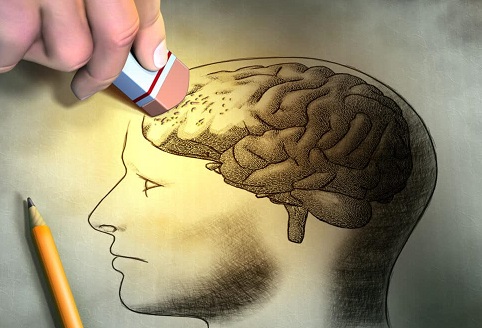Can Depression Affect Your Memory?
Depression, a widespread mental health condition, affects numerous individuals globally. It is defined by persistent feelings of sadness, hopelessness, and a decline in interest towards activities.
While its primary sphere of influence is an individual’s emotional state, depression also carries notable consequences for cognitive functions, including memory.
This article delves into the intricate interplay between depression and memory, exploring how depression impacts various aspects of memory function.
Memory is a multifaceted cognitive process that encompasses encoding, storing, and retrieving information. It plays a pivotal role in daily life, facilitating learning, decision-making, and navigation.
Yet, those grappling with depression frequently report challenges in memory and cognitive function, exacerbating their overall distress.
A frequent memory-related grievance in depression is the struggle with concentration and attention. Individuals may find it arduous to concentrate on tasks or conversations, hampering the encoding of new information into memory.
This often leads to forgetfulness, difficulties in assimilating novel concepts, and impaired performance at work or in academic settings.
Working memory, responsible for temporarily holding and manipulating information, is also impacted by depression. Essential for tasks demanding mental exertion, such as problem-solving and following multi-step instructions, working memory difficulties can lead to struggles in organizing thoughts, planning, and completing intricate tasks.
Depression’s Effect on Memory
Another dimension of memory affected by depression is episodic memory, involved in recalling specific events or experiences. Individuals with depression may encounter challenges recollecting past events or specific details of personal experiences, fostering confusion, self-doubt, and detachment from their own history.
Prospective memory, which pertains to remembering to execute future intentions or tasks, can also be compromised by depression. Difficulties in remembering appointments, deadlines, or crucial events can result in heightened stress, missed opportunities, and strained relationships.
The impact of depression on memory is traceable to several factors. Primarily, depression is linked to changes in brain chemistry, particularly in regions implicated in memory formation and retrieval, such as the hippocampus.
Neurotransmitter imbalances, notably serotonin and norepinephrine, can disrupt these brain areas’ normal functioning, affecting memory processes.
Moreover, depression’s cognitive symptoms, including negative thought patterns, rumination, and self-criticism, can contribute to memory challenges.
Preoccupation with negative emotions or thoughts can hamper attention and effective encoding of information.
Additionally, the emotional distress associated with depression can impede memory retrieval processes, obstructing access to stored information when required.
Memory difficulties stemming from depression can yield considerable ramifications. Affected individuals might experience heightened frustration, diminished self-esteem, and a decline in confidence regarding cognitive abilities. This can significantly impact daily functioning, straining academic/work performance, personal relationships, and overall quality of life.
It’s important to acknowledge that not all individuals grappling with depression will experience memory difficulties to the same degree.
The severity and impact on memory can vary, contingent on factors like overall cognitive capacities, the duration and intensity of depressive episodes, and the presence of other concurrent conditions.
Treating depression and addressing its repercussions on memory necessitates a comprehensive approach.
Psychotherapy, including cognitive-behavioral therapy (CBT) or mindfulness-based interventions, can empower individuals to manage negative thought patterns, enhance concentration and attention.
This therapeutic avenue also tackles underlying emotional distress while fostering support for overall cognitive function.
In certain cases, medication may be prescribed to alleviate depressive symptoms and bolster cognitive function. Antidepressant medications, such as selective serotonin reuptake inhibitors (SSRIs) or serotonin-norepinephrine reuptake inhibitors (SNRIs), could be utilized to restore neurotransmitter equilibrium, alleviating depressive symptoms, and thereby fostering better memory and cognitive function.
Beyond therapy and medication, specific lifestyle modifications can fortify memory function in individuals contending with depression. Regular exercise has demonstrated efficacy in enhancing cognitive function and memory.
Physical activity increases cerebral blood flow and promotes the generation of new neurons, thereby enriching overall cognitive health.
A balanced diet rich in fruits, vegetables, whole grains, and lean proteins can supply vital nutrients and antioxidants that bolster brain health. Maintaining adequate hydration is also pivotal for optimal brain function.
Establishing a robust sleep routine is indispensable for memory consolidation and overall cognitive performance. Adhering to consistent sleep schedules, employing relaxation techniques pre-sleep, and cultivating a sleep-conducive environment can heighten sleep quality and augment memory function.
Stress management techniques, such as meditation, deep breathing exercises, and engaging in enjoyable pastimes, can alleviate emotional distress linked to depression, fostering superior cognitive function encompassing memory.
Building a reliable support network is pivotal in managing depression and its effects on memory. Seeking support from friends, family, or support groups can provide emotional validation, understanding, and encouragement. Connecting with others who share similar struggles can aid in coping with memory challenges and nurturing a sense of community and support.
Crucially, it’s worth recognizing that the impact of depression on memory is amenable to treatment, and individuals can regain cognitive functioning with appropriate interventions.
Seeking professional assistance from mental health practitioners capable of evaluating depression’s severity and formulating a customized treatment strategy addressing both emotional and cognitive facets is paramount.
To summarize, depression profoundly influences memory, impacting aspects such as attention, working memory, episodic memory, and prospective memory.
The intricate relationship between depression and memory encompasses shifts in brain chemistry, negative thought patterns, and emotional distress.
Memory difficulties stemming from depression bear wide-reaching implications, affecting daily functionality, self-esteem, and overall life quality.
Nevertheless, by employing a blend of therapy, medication, lifestyle adjustments, and a strong support system, individuals can manage depression and uplift memory function. Remember, seeking professional help is pivotal in effectively addressing depression’s impact on memory.

